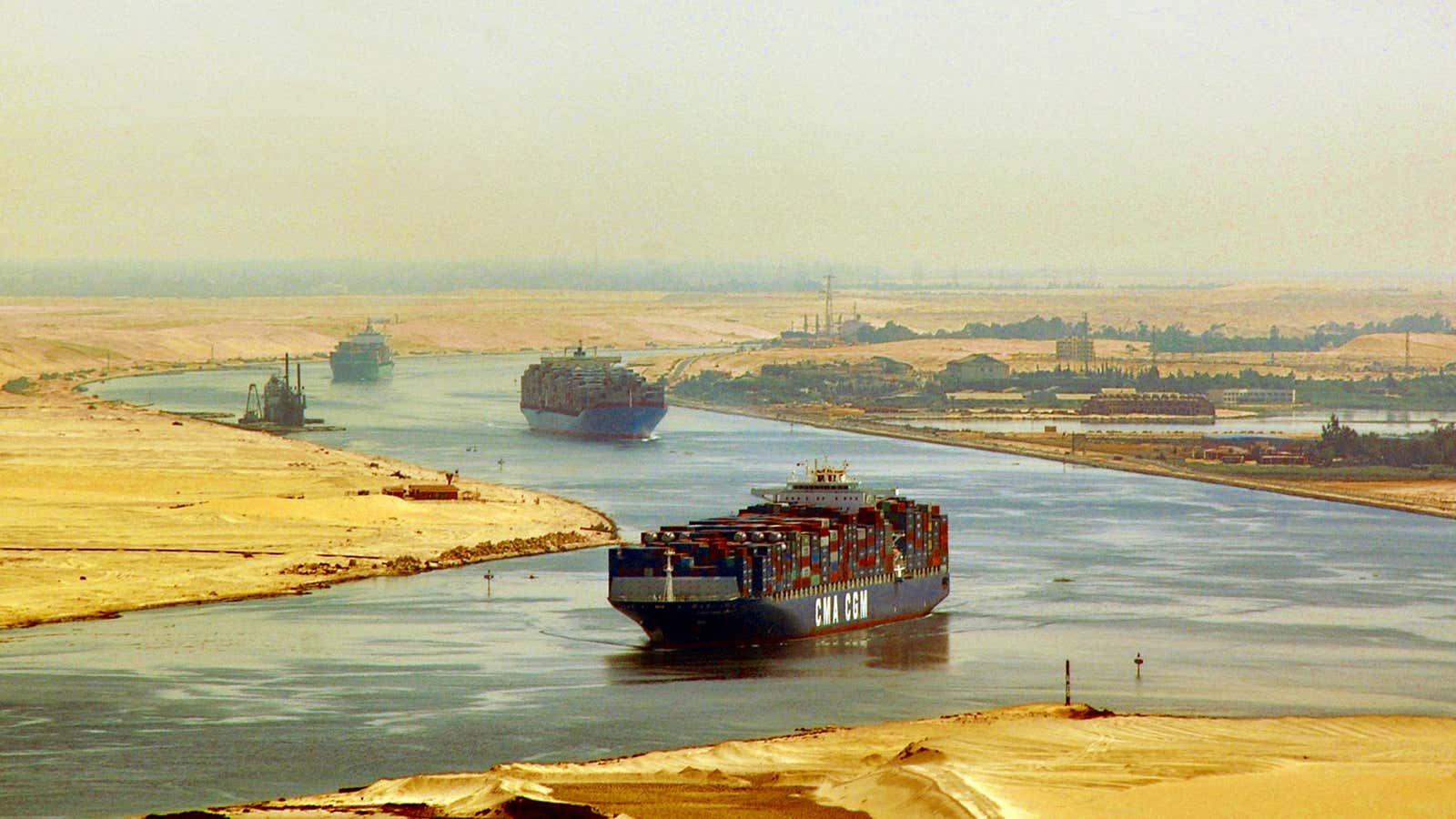Political violence in Egypt has the world anxious about the country’s future, but few businesses are concerned about the Suez Canal, the 120 mile passage between the Red Sea and the Mediterranean.
Lloyds of London, which insures ships transiting the canal, says it is not worried about safety or operation, although maritime insurer Skuld is warning ship’s crews to be cautious, especially if they go ashore.
That’s not to say there are no issues. The curfew instituted as part of the country’s emergency law has restricted port operations in the evening, and oil prices have risen slightly risen over concerns about delays in the canal to $110 a barrel, still below a winter peak of $118. About 3% of the world’s oil supply, or 2.5 million barrels, goes through the canal every day; about 8% of global trade transits the canal.
Insurers aren’t just confident because the canal is supposed to remain open in time of war. The Suez is just too important to Egypt’s economy for the military government—or any other that may come to power—to allow it to close. The military has made the canal’s security a top priority. Revenues from the canal contributed $2.4 billion to the country’s economy in the first half of this year, and typically provides about 10% of the country’s hard currency. Earlier this year, Egypt’s currency reserves fell below $10 billion.
While Egypt’s generals are basking in donated Gulf oil billions for now, the country still has a serious balance-of-payments problem that has exacerbated the economic difficulties and food shortages that provide the misery underlying the political clashes. Meanwhile, both the European Union and the United States are under increasing pressure to cut off their own aid to the country following several days of massacres.
Could the canal be closed as a negotiating ploy to extract help from Western governments increasingly leery of Egypt’s military junta? Perhaps, but Egypt probably needs the canal revenues more than it needs Western aid, and for container ships, at least, a diversion around the Cape of Good Hope probably wouldn’t result in huge delays, just higher costs.
So for now, the Suez Canal, if not Egypt’s political system, remains open.




